A Talk With James Spooner, The Creator of Afro-Punk
James Spooner is an L.A based filmmaker, tattoo artist and graphic novelist.

In 2003, Spooner shot and directed a documentary called ‘Afro-Punk’ that explored the lives of Black youth participating in a predominately white punk rock subculture and the alienation they face from both white and black communities. After holding screenings around the country, the film’s popularity grew and in 2005 Spooner along with Matthew Morgan, co-created the Afro-Punk festival as a social gathering for the black punk communities that organically formed on the Afro-Punk website’s community message boards. For the past 14 years, the Afro-Punk festival has been held in Brooklyn and has grown to become a global phenomenon. Four years after the inaugural Afro-Punk event took place, Spooner parted ways with the brand over creative and philosophical differences.
He is currently working on a graphic novel based on his experience as a young black punk growing up in California and New York. I sat down with James Spooner to talk about the importance of carving your own space, the idea of authenticity, and the intersection of Black culture and counter culture.
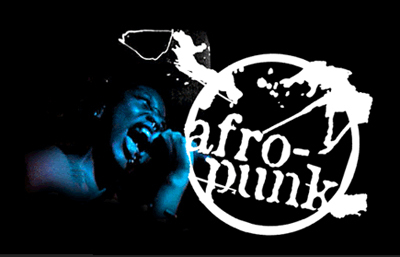
High. How Are You?
Good, good!
At the beginning of the Afro-Punk documentary there is a montage of self-identified Black punks talking about how they fell in love with the music and the culture. What is your punk origin story?
It’s funny that you ask that because that is the subject matter of the graphic novel that I’m working on, but I moved to a new town in the high desert in California. I was a new kid. I was a skateboarder. I kinda had this perfect storm of circumstances that led me to punk. I think that having a single mom, being one of a few Black kids in this school and even in this town, and not having money. Within my first weeks of school, there was a kid that befriended me named Travis who was punk but also Black and I just thought he was the coolest. Listening to punk music through skateboarding and through Travis and hearing these bands say things that resonated with my 13 year old angsty self. You know, there’s a community there and I think to a certain degree people are going to make fun of me anyway so let me take control over what they are making fun of me for.
Within a year or so… This was a town where there was really nothing to do except get in trouble. My mom didn’t really like the kids I was hanging out with and she decided that we were going to move to New York, which of course is one of the birthplaces of punk so there’s like, unlimited access.
She totally exacerbated the problem.
Yeah. But what was great about it was, and I think my mom knew this, was the fact that at my core I’m not a bad kid. New York gave me more access to more kinds of things which opened the door for me and eventually I found myself wrapped up in the D.I.Y hardcore scene which was infinitely more positive.
Was there any show or moment involving music that was life changing for you?
There’s only two shows that I got to in that desert town that I lived in. One of them was a Christian metal show. All of this will be in my graphic novel, but my friend got jumped by a bunch of white power kids. I don’t know if it was life changing but it was definitely a reminder that I wasn’t welcome.
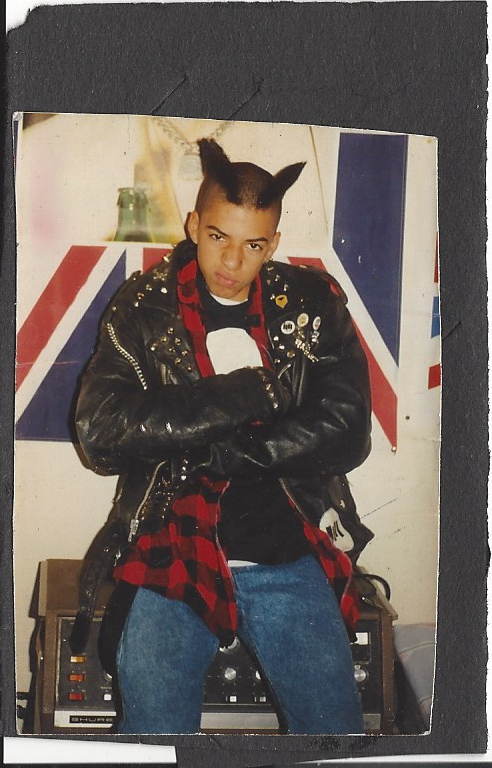
Wait. Your friend got jumped by white supremacists at the Christian metal show?
Yeah. Again, we’re in this town where there is literally nothing for kids to do. The show was at the local community center and every weirdo in town My very first punk show, again not necessarily life changing but pretty awesome, but its actually on YouTube. There’s an interview on it with me when I was 14. It’s really embarrassing. But as far as really life changing shows, there are so many different moments in my life where I felt like I was in the right space. I would say a time where I felt the most empowered as a kid was when I started going to D.I.Y shows out in the suburbs in the Tri-state area. I would take the Greyhound and meet up with friends following different bands. It wasn’t a show in particular but it was that time period where I was hanging out in basements and VFW Halls. Shows where there were no adults present whatsoever.
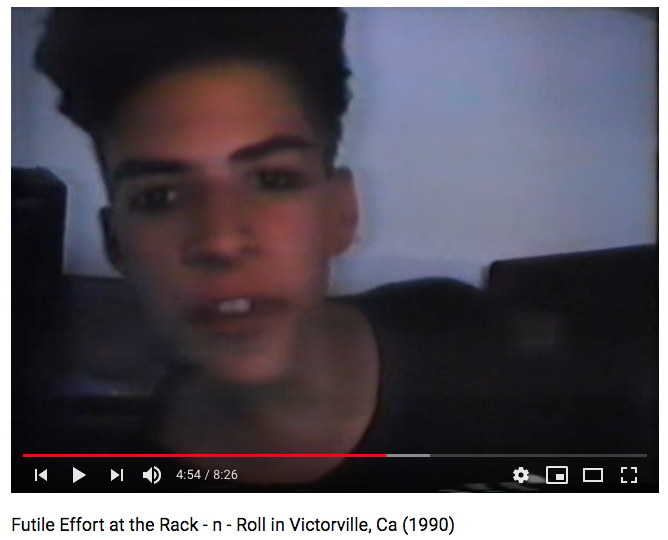
When I realized that I could write my favorite bands and they would come to town and sleep on my floor. It was in those moments that I found out about Punk audacity and that I could be empowered to write a zine’ and people would read it or start a record label and people would buy those records. It was those kinds of things that set the foundation for me when I was 23 to make a film without any film school training.
At what point did you conceive the idea for the documentary and how long did it take you to execute it?
So when I was 23 I started having this identity crisis around my Black identity. I’m bi-racial and it would just happen every few years because I wasn’t connecting with the Black community but there was this call for me to. When I was really young it would be satiated by watching Roots or The Color Purple or something. I just needed to connect and it got to a point where that wasn’t enough. I started talking to my friends of color and asking questions that were getting me really angry at the hardcore scene. You know, “How am I a feminist at 16 or a vegan at 15 years old having all these awesome politics and yet nobody is talking about race or things that matter the most to me.”
At the time, my dad lived in the Caribbean so I went home to visit him in St. Lucia and I had this awakening like “Oh shit. You don’t know what it means to be Black.” I had this fear that I was missing out on something. And I was. I also had this anger at the punk scene that raised me. So I decided that the punkest thing I could do would be to critique the punk scene. So I decided to make this film and started out interviewing Black punks in New York where there are plenty. Then I started reaching out to find old friends and that turned into a cross country trip talking to kids all over the country. It ended up taking two years from conception to the first screening.
The two people who stuck out the most to me in the film were the one young Black woman that you interviewed who exclusively hung out with white people because she had negative connotations about Black people. You could sense a lot of self-hatred within her and then you had the polar opposite, the woman who actively seeking African images that were the origins for the punk aesthetic. The indigenous origins of mohawks and scaring ones self, septum piercings and things like that.
What are your thoughts on Black people having some kind of ownership within rock music or at least feeling like they deserve to be there?
I feel like the thing that I learned from making the film and subsequently screening the film and meeting thousands of people is that Black people are not a monolith. Back then I used to say, “There’s the Black experience and then there is the other Black experience.” I think Afro-Punk.com still uses that slogan, “The other Black experience”. I became really comfortable with the idea that there is no singular Black experience and we can do or be involved with whatever we want.<
In so many cases indigenous people get gentrified out of things. Black people created Rock n’ Roll and we got gentrified out. If there are Black people who still want to do it and still want to claim it, no one has the right to say they don’t. It’s kind of like people saying “Mexico hasn’t been a part of California for so long that it doesn’t even count anymore so we’re just going to build this wall.” It’s like no, actually this is Mexico and we stole it. It’s that kind of thing.
I’ve put together a slideshow for all of these screenings I have coming up and I realized that the ironic thing is the Afro-Punk company has gentrified out the original Afro-Punk community. If you talk to anyone who was around in the early 2000’s, the vast majority of them don’t feel comfortable going to the festival, there isn’t a community board anymore. There’s no real way to connect with people on a 1-on-1 level outside of going to this festival. So sometimes it’s not even a person of color versus white people thing. Sometimes its a counter-culture versus mainstream thing. Now that Afro-Punk is a festival whose primary goal is to make money, it in fact has done the very thing that it was rebelling against. The nature of capitalism.
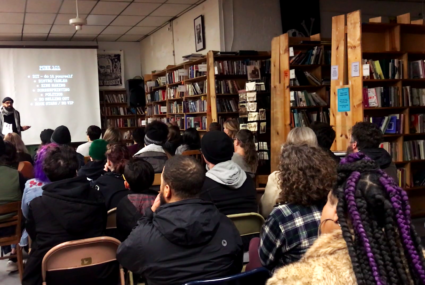
You have since parted ways with Afro-Punk the brand. It’s gone on to become a festival with a lot of corporate sponsorships and events around the world. I’m sure there’s been performers that you may have admired at some point in your life. Do you regret severing ties and more importantly, does it feel like you’ve lost your baby in a sense?
I’ve never had regret. There were times where it felt like it was a child that I had raised that grew up to become a corporate lawyer, which was sad and a little embarrassing. In the decade that it’s been out of my hands, I’ve kind of come to Jesus about it a little bit and I am able to separate my personal feelings from some of the positives that it does have. I’m able to recognize that if I were 22 and living in NYC, I’m sure that if I could afford it I would want to check it out. It’s a bunch of Black people having a great time together. There’s nothing wrong with that. The part that is bitter about it is that I know the inner workings and I know how many people have been ripped off in order to get to this place, including myself.
I’ve only been once in 2013 but I remember thinking that the line up is great, but the line up of musicians are also artists that I can see at Coachella or Essence fest and a lot of other music festivals. I kind of wished there were more Black indie punk bands.
Here’s the thing, and I can’t say this to people enough. It comes up all the time. People want to live in this fantasy world where you can have a festival as big as Afro-Punk that has thousands of attendees. They want that environment but they want this fictional Black rock band that can draw those numbers! You can only put on Bad Brains, Fishbone and Living Colour so many times before its like “Okay, we saw this exact same festival last year.” Me knowing that while I was involved in producing the festival, I wasn’t interested in having 60,000 people attend.
I wasn’t interested in anything that resembles what the festival looks like today. I was interested in putting on a community based event that focused on Black people with alternative interests. If 200 people came, to me, that’s a great show. But 200 people is not going to make you a million dollars.

People keep saying “I want the old Afro-Punk.” or “I wish I could have been there back in the day.” That exists! There are six festivals to my knowledge in the United States that are doing just that. POC punk festivals. People aren’t interested in seeking out those and going to a VFW hall or going to shows where you can see 10 hardcore bands of color in one night with 400 kids. They want the Coachella experience with a band like Soul Glo headlining and that’s just not gonna happen. The silver lining is that there is the Break Free Fest, Punk Black Fest, Black and Brown Fest, Decolonize Fest. There are so many festivals that are doing the D.I.Y thing where you can go and see authentic punk bands and buy records without bar codes. You can get silkscreen t-shirts that the bands print themselves. So it’s just the choices that we make.
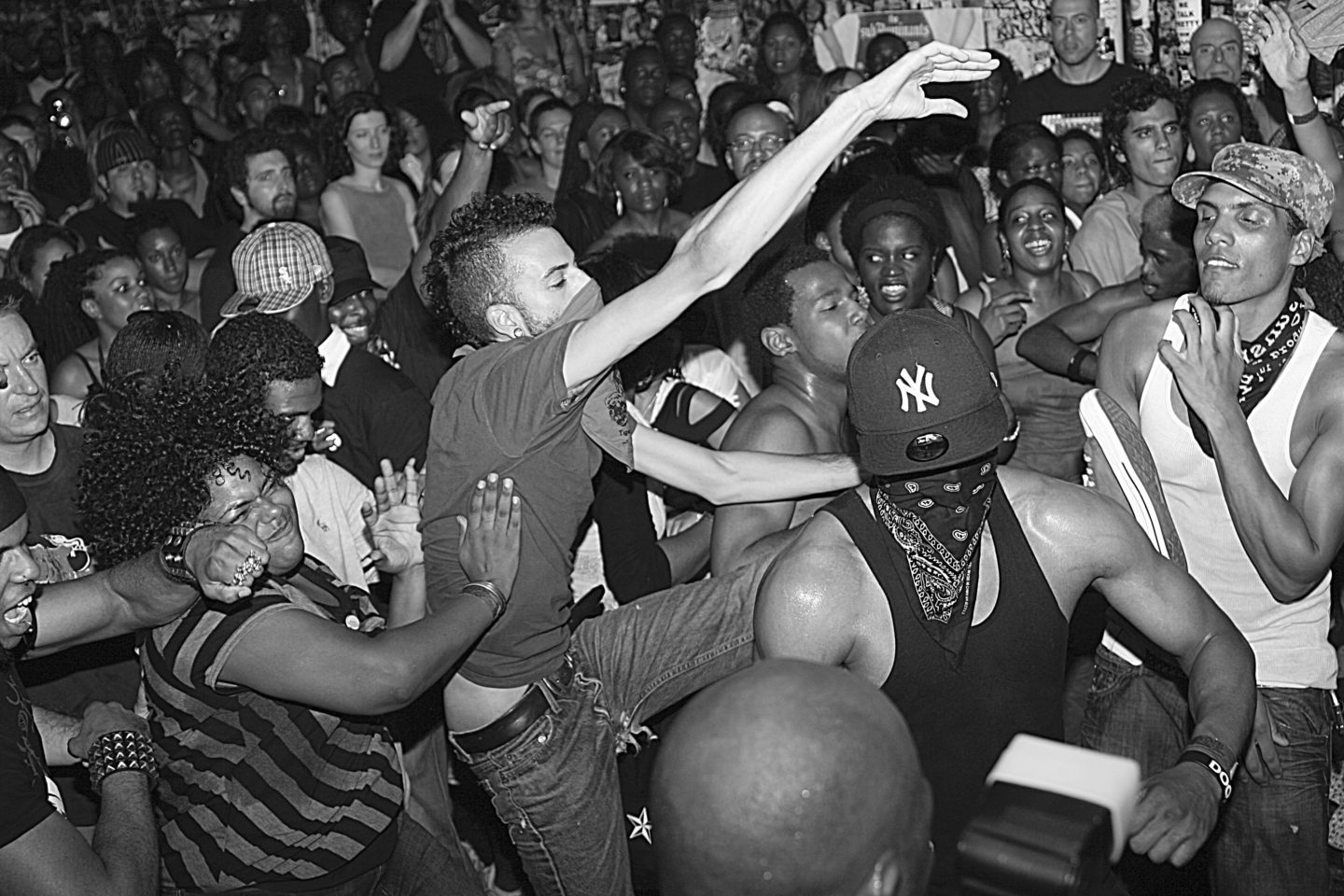
Punk is now an aesthetic to young Black kids who don’t even listen to it. I try not to be pretentious when I see someone who I’m 90% sure doesn’t listen to Dead Kennedys but is wearing a Dead Kennedys shirt. Or maybe they do! But do you think Black kids today are more open to “weirdness”.
Yeah! If you’ve ever seen any of the Soundcloud rappers, those dudes are way weirder than the average punk rock kid. These kids are tattooing their face before they tattoo anything else. That’s pretty weird. I think that there is definitely more of a space for alternative dress, attitudes, and more eclectic music tastes for Black kids than there was 15 years ago when I made this film. I don’t think that the door is kicked down so wide open that average Black America would be above saying, “Oh that’s some white people shit.” about anything. It wouldn’t surprise me if these mumble rappers, who by my estimation are the cool shit right now, but it wouldn’t surprise me of there was still a pocket of the Black community who perceive them as doing white people shit even though they are rapping.
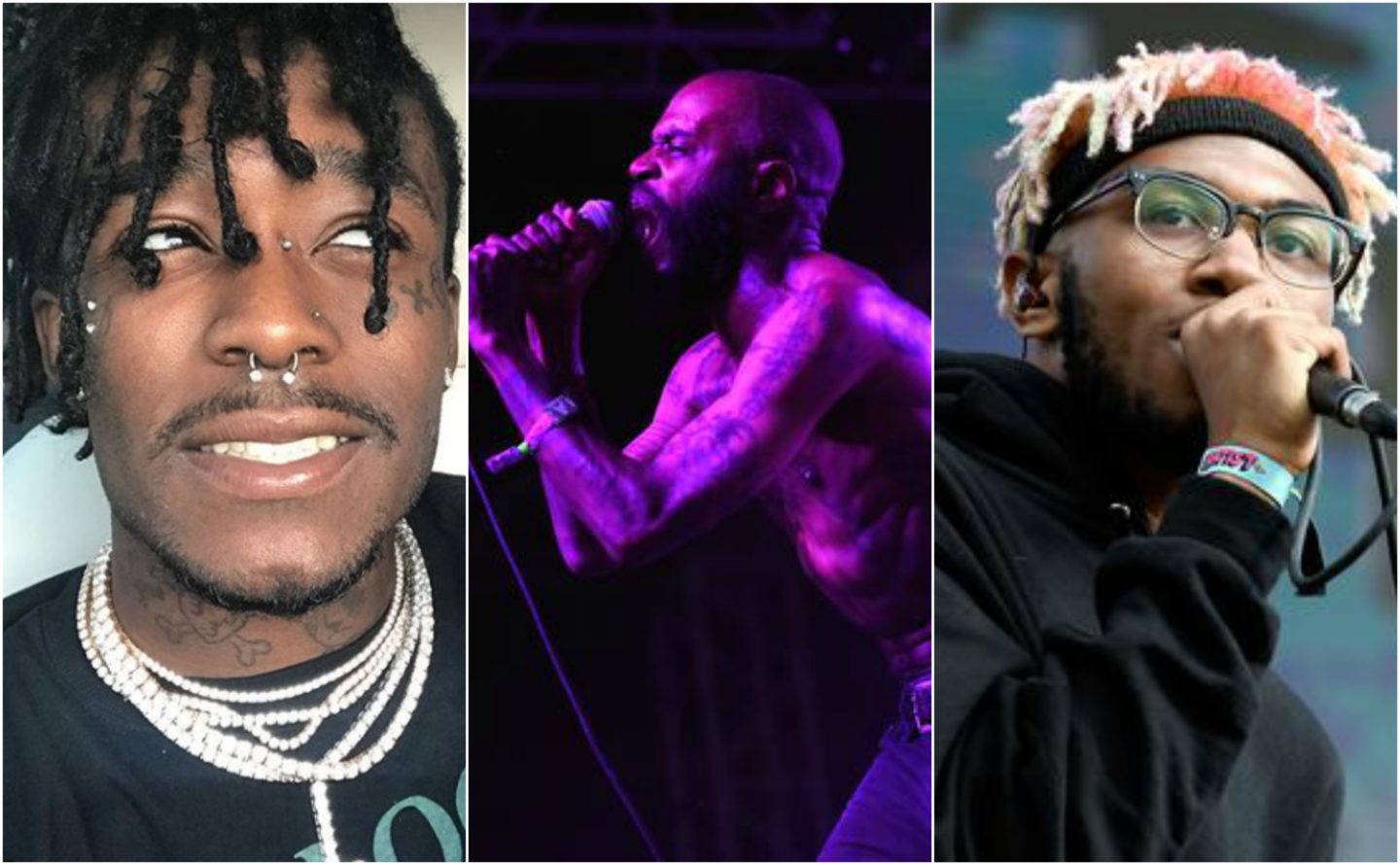
You’re a Vegan tattoo artist that specializes in tattooing dark skin. You also mentioned earlier that you write comics and graphic novels that deal with a lot of social topics including feeling like an outsider. What are the parallels that you face with being a tattoo artist and writer that you also face with being a Black punk fan?
I’ll say this. The reason that I specialize in tattooing dark skin is because as a tattoo artist I was looking around and seeing a lot of Black folks have really crappy tattoos and they don’t have to! There isn’t enough education around what is possible so again I’m seeing an under served community. With Comics its just like filmmaking, is an avenue for me to tell stories. It’s hard for me to tell stories that don’t relate in some way to my experience as a Black person. I’m definitely D.I.Y about how I’m choosing to produce it. I’m trying to go through the front door and secure a traditional publisher but I’m not above printing it myself.
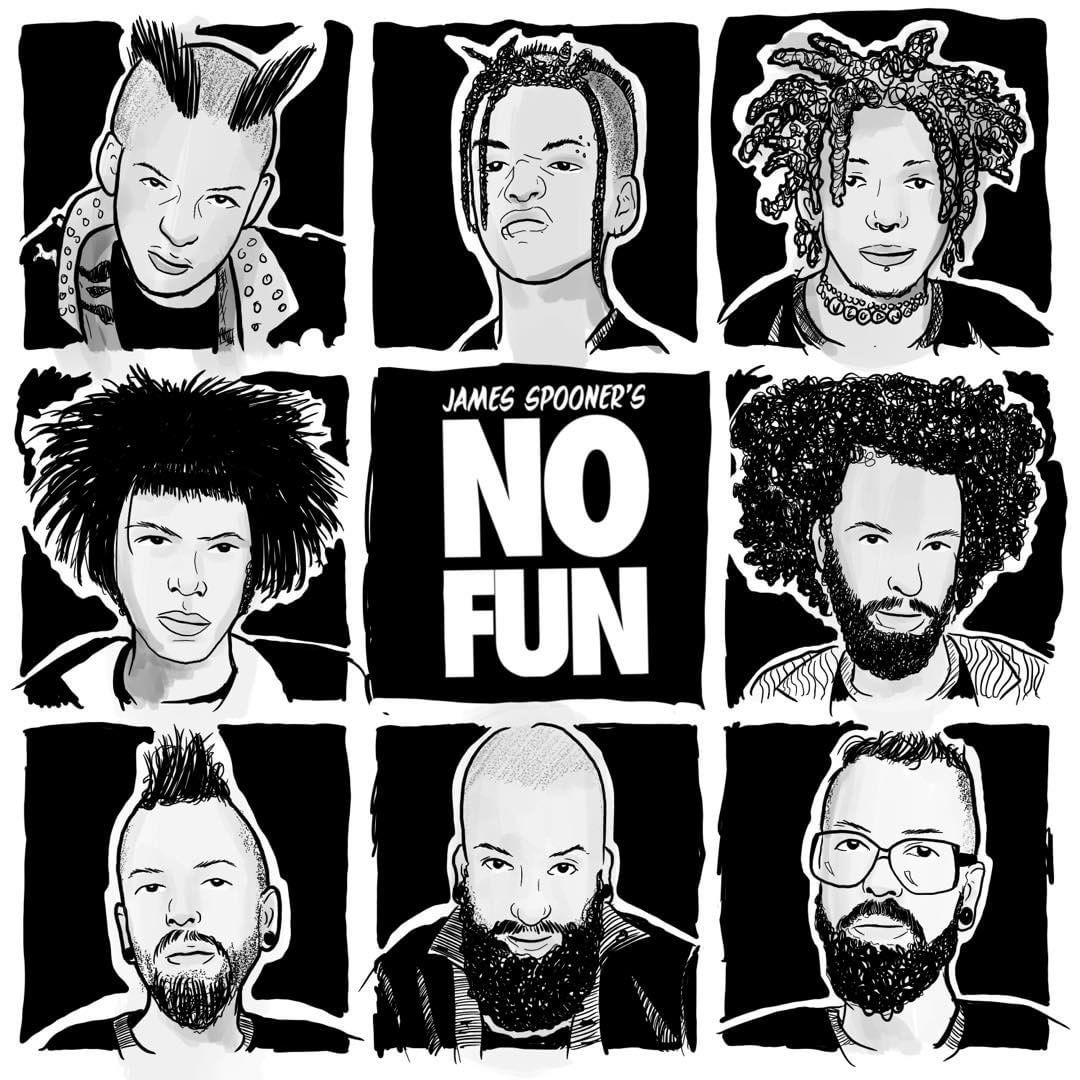
If I had to choose one thing that connects all three of those life choices, it’s that original punk audacity to think that at 17 I could have my own record label, at 23 I could make a film without going to film school, at 30 I decided I wanted to tattoo people and did it. At 40, I decided to make comics. I’ve never been scared to do something. That’s not to say just order a tattoo kit off Ebay and start tattooing people. There’s definitely a process. But to have the desire to change your career and just do it, I think is a really punk mentality I learned at 14 and never forgot.
You can follow James Spooner at @spoonersnofun and @monocletattoo on Instagram. To find more about AfroPunk screenings in your area check out AfroPunkFilm.com







